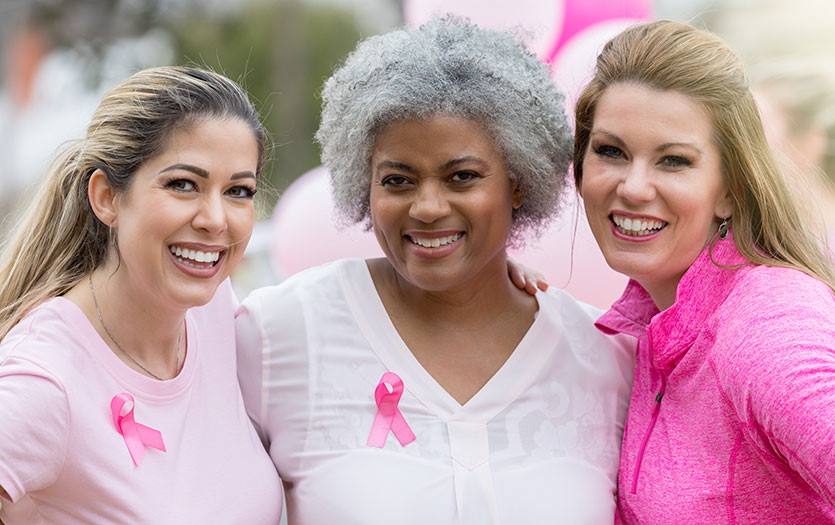
Navigating life with a newborn – from sleep to schedules to your postpartum body – is better with a little guidance from an expert. With lactation in mind, we turned to Sarah Wolfe, RN-BSN, IBCLC, FCN, CPST, Parkview Hospital Family Birthing Center, for insights on common breastfeeding questions related to diet and fluid intake for new moms.
Do women need to eat more while breastfeeding?
Breastfeeding mothers can follow the same basic principles as the rest of their families when it comes to nutrition. New mothers may find it hard to make time to eat, so smaller, more frequent meals that are nutrient-dense may be more suitable to have on hand. Make sure your body is getting enough food, and plenty of nourishing food.
Does a mother need to drink more fluids while she is breastfeeding?
According to the book, “Breastfeeding Answers Made Simple: A Guide for Helping Mothers,” contrary to popular belief, drinking more fluids is not associated with greater milk production. Drinking at the first sign of thirst is a good rule of thumb. Some mothers find that they become thirsty when they begin a nursing session. For these mothers it’s recommended to keep fluids close at hand during breastfeeding. Water is always the first choice in hydration, but some mothers may find that their thirst is satisfied by enjoying soups, fruit and vegetable juices, coconut water or milk.
Are there foods that support breastmilk production?
When a mother has healthy eating habits prior to birth, there is usually no reason to adjust her diet after delivery. However, if a mother is experiencing a decrease in milk production and wants to try to increase milk, then there are some foods that may aid in the process. These foods are called galactagogues. Some foods that fall into this category are:
- Whole grains (especially oatmeal)
- Dark, leafy greens (alfalfa, kale, spinach, broccoli)
- Fennel
- Garlic
- Chickpeas
- Nuts and seeds (especially almonds)
- Ginger
- Papaya
- Spices (cumin seeds, anise seeds, fennel seeds and turmeric)
Are there foods that can hinder breastmilk production?
Mothers should try to avoid an excess of certain herbs, as they are believed to be linked to instances of decreased milk production:
- Black walnut
- Chickweed
- Herb Robert (Geranium robertianum)
- Lemon balm
- Oregano
- Parsley (Petroselinum crispum)
- Peppermint (Mentha piperita)/Menthol
- Periwinkle herb (Vinca minor)
- Sage (Salvia officinalis)
- Sorrel (Rumex acetosa)
- Spearmint
- Thyme
- Yarrow
Can different diets, such as vegan or vegetarian, affect breastfeeding?
Due to the risk of vitamin B12 deficiency in mothers eating a strictly vegetarian/vegan diet, vitamin supplements are recommended. Infants who are deficient in vitamin B12 are at a greater risk of neurological problems. According to “Breastfeeding Answers Made Simple: A Guide for Helping Mothers,” the first symptoms of a newborn lacking the vitamin are often irritability and disinterest in feeding, vomiting, drowsiness, a weak cry and motor development regression.
Can a mother’s diet while breastfeeding affect her baby?
Absolutely, as referenced in the B12 example above. There are times when the food Mom eats can cause baby's behavior to change or cause physical symptoms. In these instances, mothers can stop eating the food items and see if it makes a difference.
The FDA does warn people who are breastfeeding to avoid eating fish that are high in mercury, such as swordfish, shark, king, mackerel and tilefish. Sushi is also of concern if you are unsure of its source and preparation, as it can carry parasites or bacteria. But generally speaking, as stated above, if a woman had a healthy diet prior to birth she usually doesn't need to change it while breastfeeding.
If you are a breastfeeding mother and have concerns about your diet, please reach out to your pediatrician or a certified lactation consultant. We are happy to help troubleshoot any setbacks or investigate any issues you might be having.
Sources
Lauwers, J., & Swisher, A. (2016). Counseling the Nursing Mother: A Lactation Consultant's Guide (6th ed.). : Jones & Bartlett Learning.
Mohrbacher, N. (2010). Breastfeeding Answers Made Simple: A Guide for Helping Mothers. : Hale Publishing, L.P.



